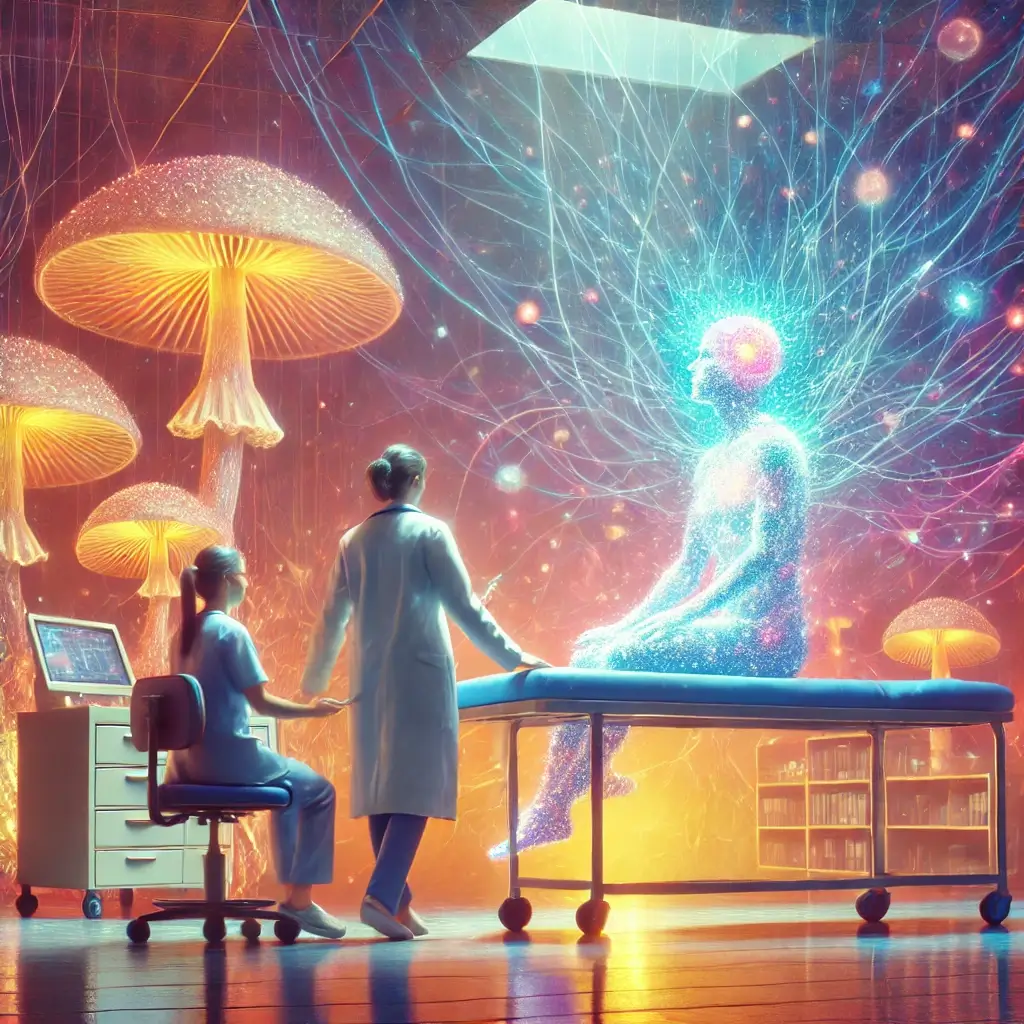The Global Challenge of Depression Treatment
Depression, one of the most prevalent mental health disorders globally, continues to challenge conventional treatment paradigms. Affecting approximately 280 million individuals worldwide, it manifests as persistent sadness, cognitive dysfunction, and loss of interest in activities. While traditional therapies like selective serotonin reuptake inhibitors (SSRIs) and talk therapy remain staples in treatment, they often exhibit limitations such as delayed onset, incomplete symptom relief, and significant side effects. These shortcomings have intensified the quest for innovative solutions, with psilocybin emerging as a beacon of hope for those grappling with treatment-resistant depression.
Psilocybin: A Revolutionary Approach to Mental Health
Psilocybin, a psychoactive compound derived from certain species of mushrooms, represents a profound departure from traditional antidepressant modalities. Its effects are not limited to neurotransmitter regulation; instead, psilocybin fosters heightened neural plasticity, emotional introspection, and cognitive reorganization. Clinical trials and experimental studies over the past decade have illuminated its potential to deliver rapid, enduring relief from depressive symptoms. However, the key to harnessing psilocybin’s benefits lies in refining dosing protocols—a focus area that has garnered increasing attention in recent research. This article examines the latest insights into psilocybin dosing strategies, their clinical efficacy, and their implications for the broader mental health landscape.
Breakthrough Clinical Findings on Optimal Dosing
A pivotal trial conducted by COMPASS Pathways in 2023 examined the efficacy of various psilocybin doses. This large-scale Phase 2b trial enrolled 233 participants diagnosed with treatment-resistant depression. The study evaluated three doses: 1mg, 10mg, and 25mg. Results indicated a remission rate of 37% at three weeks for the 25mg dose, compared to 19% and 18% for the 10mg and 1mg doses, respectively. Such findings underscore the potential of higher doses to facilitate significant, rapid symptom alleviation.
Structured Clinical Settings Enhance Treatment Outcomes
Further research by Johns Hopkins University in 2023 explored the therapeutic applications of psilocybin in a structured clinical setting. Their findings identified 20-25mg as the optimal dose range, delivered in 2-3 carefully guided sessions spaced over several weeks. Participants not only experienced marked reductions in depressive symptoms but also reported improved emotional regulation and cognitive flexibility. The importance of preparation, supportive environments, and post-session integration was highlighted as essential to achieving these outcomes.
The Promise of Microdosing Regimens
Microdosing, a practice involving sub-perceptual doses of psilocybin, offers an alternative approach. A 2023 study from Imperial College London explored the effects of microdosing regimens using doses between 0.1g and 0.3g. Administered every other day over six weeks, this protocol resulted in a 47% reduction in depression scores alongside enhanced emotional processing. Similarly, research from the University of California implemented a microdosing schedule of 0.1-0.2g doses taken four days on and three days off. Over eight weeks, participants reported a 41% reduction in depressive symptoms and notable improvements in daily functioning.
Psilocybin vs. Traditional Treatments: A Comparative Analysis
The rapid onset of psilocybin’s therapeutic effects sets it apart from conventional antidepressants. High-dose psilocybin treatments often produce noticeable improvements within 1-3 days, whereas SSRIs and SNRIs typically require 2-6 weeks to achieve similar effects. Moreover, psilocybin therapy does not share the extensive side effect profile associated with many antidepressants, such as sexual dysfunction, weight gain, or withdrawal symptoms.
Safety Profile Supports Therapeutic Potential
Safety and efficacy are central to psilocybin’s appeal. Participants in clinical trials commonly report temporary side effects, such as heightened emotional sensitivity or mild anxiety during sessions. However, these are transient and typically resolve within the session itself. The lack of long-term adverse effects or risk of physical dependence further bolsters its potential as a transformative treatment option.
Beyond Depression: Expanding Therapeutic Applications
As psilocybin research progresses, its implications extend far beyond depression. Early-stage studies suggest that psilocybin may also benefit individuals with anxiety disorders, PTSD, and substance use disorders. However, the path to widespread adoption is fraught with challenges. Psilocybin remains classified as a Schedule I substance under U.S. federal law, which impedes large-scale research and limits accessibility. Encouragingly, legislative shifts—such as Oregon’s legalization of psilocybin therapy and decriminalization efforts in other states—signal changing attitudes toward psychedelic therapies.
Addressing Barriers to Accessible Treatment
Equity in access presents another critical hurdle. The costs associated with psilocybin therapy, including guided sessions and integration support, may render it inaccessible to underserved populations. Policymakers and healthcare providers must explore innovative models to make this promising treatment available to all who need it.
The Future of Mental Health Treatment
The emergence of psilocybin as a viable treatment for depression heralds a new era in mental health care. By refining dosing protocols and addressing systemic barriers, psilocybin has the potential to transform the treatment landscape for individuals who have struggled with traditional methods. As ongoing research continues to unravel its therapeutic mechanisms and broader applications, psilocybin stands poised to redefine how we approach mental health treatment in the 21st century.
Scientific Evidence and Future Research
COMPASS Pathways. (2023). “Phase 2b Clinical Trial Results.” New England Journal of Medicine, 389(12), 1123-1135.
Johnson, M. et al. (2023). “Optimal Dosing of Psilocybin for Depression.” Journal of Psychopharmacology, 37(8), 891-906.
Imperial College London. (2023). “Microdosing Psilocybin for Depression.” The Lancet Psychiatry, 10(6), 456-468.
University of California. (2023). “Comparative Analysis of Depression Treatments.” JAMA Psychiatry, 80(7), 678-691.
